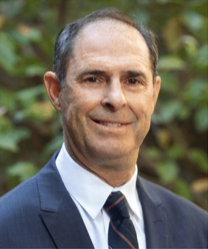CEQA News & Updates
Weakening CEQA Protections Won’t Help State Build Housing
By Reina Tello, community organizer, People Organizing to Demand Environmental and Economic Rights, San Francisco

Reina Tello
August 28, 2024
The San Francisco Chronicle ran this Letter to the Editor from Reina Tello:
Regarding “White House slams San Francisco for its ‘unnecessary and onerous’ housing approvals” (San Francisco, SFChronicle.com, Aug. 23): The White House statement calling for housing reform cited delays in the state from environmental review lawsuits, which could be interpreted as a call to weaken the California Environmental Quality Act.
Arguing that protecting the environment, public health and the climate is too great a burden to place on our policymakers and developers gets our state’s priorities backward and is irresponsible.
The law, known as CEQA, does not stop development; it makes development better and healthier, enhancing the quality of life for Californians. Scapegoating CEQA will not change market forces that undermine housing production. Notably, tens of thousands of housing units in San Francisco are approved to be built but have not been for economic reasons.
Lawmakers in recent years have adopted numerous CEQA exemptions for housing. Yet we still have a housing crisis because, as multiple studies have demonstrated, other factors are the root cause.
Policymakers should focus on the actual cause of the state’s affordability crisis and housing shortage. California can produce needed housing without decimating its foremost environmental justice law.
CEQA Hasn’t Been Overhauled. That’s Good News for Californians: Los Angeles Times Letter to the Editor
By Douglas Carstens, Board President of the Planning and Conservation League and managing partner of Carstens Black & Minteer LLP

Doug Carstens
August 27, 2024
The Los Angeles Times ran this Letter to the Editor from Doug Carstens:
In his op-ed article calling for reforming the California Environmental Quality Act<https://www.latimes.com/opinion/story/2024-08-23/reform-ceqa-stop-punching-holes-in-it>, William Fulton does not acknowledge the reason that the law has not been drastically overhauled: It empowers a very broad range of the state’s population, including the most vulnerable.
CEQA is a bill of rights for an environmental, participatory democracy.
In addition to being relied upon by environmental groups, labor unions and community-based organizations, it has also empowered public agencies, Native American tribes and others who are seeking to protect California’s precious environment and resources.
An across-the-board deregulatory approach that fails to encompass the nuances necessary to protect California’s diverse population with its multiplicity of interests is not going to fly in the Legislature, nor should it.
CEQA in 2024: Narrated Slide Show
July 30, 2024
 Are you curious about how CEQA is currently working in California? This narrated slideshow provides information about the history and purpose of CEQA; CEQA and housing; CEQA and infrastructure; and the many ways that CEQA protects communities and the environment.
Are you curious about how CEQA is currently working in California? This narrated slideshow provides information about the history and purpose of CEQA; CEQA and housing; CEQA and infrastructure; and the many ways that CEQA protects communities and the environment.
Watch and share the “CEQA in 2024” narrated slideshow.
The False Narrative Around CEQA and the California Housing Crisis: Guest Article in the Los Angeles and San Francisco Daily Journal

Andrew W. Schwartz
By Andrew W. Schwartz
July 25, 2024
This detailed argument from Andrew W. Shwartz, Of Counsel at Shute, Mihaly & Weinberger, LLP, ran on the front page of the legal outlet the Los Angeles and San Francisco Daily Journal. The topic of CEQA and housing has confused policymakers for over a decade. What are the true forces contributing to California’s affordable housing crisis? Hint: Not CEQA.
Read Full Article Here
Don’t Buy the Corporate Lie that CEQA Hurts California’s Latinos: Los Angeles Times Letter to the Editor
By Grecia Orozco, Staff Attorney, Center on Race, Poverty and the Environment
July 25, 2024
The Los Angeles Times ran this Letter to the Editor from Grecia Orozco, Staff Attorney at the Center on Race, Poverty and the Environment:

Grecia Orozco
Contrary to Jennifer Hernandez’s and Soledad Ursua’s specious claims, the California Environmental Quality Act (CEQA) provides environmental justice protections for Latinos. CEQA gives Californians tools to find out and speak up about polluting projects proposed in their neighborhoods. (“Despite noble intentions, California’s environmental law is hurting Latinos,” Opinion, June 19)
Polluting projects are disproportionately built in low-income communities of color, and these communities face higher rates of asthma, cancer and pollution-related health complications. CEQA is a powerful tool to compel builders to reduce air and water pollution, traffic and other public health threats.
For example, Fontana residents (69% Latino) used CEQA to reduce diesel pollution and heavy-truck traffic in their neighborhoods from a new warehouse project. Residents in Arvin (95% Latino) used CEQA to require analysis of the impacts of four oil wells proposed near homes.
It’s unsurprising that the claims by Hernandez and Ursua are backward. Hernandez’s corporate law firm has represented developers and industries that have been trying to eliminate environmental regulations for years.
CEQA Housing Exemptions, 2002 to 2023: Fact Sheet
July 15, 2024
 CEQA has been amended many times to exempt or streamline a wide range of housing projects, or to allow ministerial approval of housing developments. The majority of these amendments have been passed over the last five years. CEQA Works provides a fact sheet that lists the housing projects covered by these amendments.
CEQA has been amended many times to exempt or streamline a wide range of housing projects, or to allow ministerial approval of housing developments. The majority of these amendments have been passed over the last five years. CEQA Works provides a fact sheet that lists the housing projects covered by these amendments.
However, because CEQA did not cause the affordable housing crisis, these amendments have not solved the problem, and further amendments to the law would be pointless. Rather than amending CEQA, policy leaders should focus on the actual causes of the state’s shortage in affordable housing, such as high land and construction costs, high vacancy rates, corporate land speculation, and lack of subsidies for affordable housing.
Read, download, and share the CEQA Exemptions fact sheet.
Little Hoover Commission’s Recommendations Undermine Fundamental CEQA Protections: Commentary in the Los Angeles and San Francisco Daily Journal
By Jennifer Ganata and Douglas P. Carstens
June 10, 2024
Daily Journal

Jennifer Ganata and Douglas P. Carstens
READ MORE
Little Hoover Commission Releases Flawed CEQA Report
By Julia Steim
May 8, 2024
Legal Planet

Julia Steim
The long-awaited report proposes sweeping exemptions and process changes—even though its own reasoning points in the opposite direction.
More than a year ago, California’s Little Hoover Commission convened the first in a series of public hearings designed to interrogate the California Environmental Quality Act (CEQA) as well as Californians’ often tense relationship with that landmark legislation. In recent years, some pro-housing advocates have pointed to CEQA as the bogeyman driving the state’s affordable housing crisis; defenders of the law say CEQA stymies relatively few developments that would close the housing gap but does serve as a crucial public participation tool for long-burdened environmental justice communities. (You can read a good overview of the Commission and the CEQA reform debate here.) Following the conclusion of the Commission’s hearings, it aimed to release a study reporting on the current state of CEQA and providing recommendations on possible amendments to the statute.
Today, it finally did. But the report, which bills itself as presenting “targeted reforms,” does anything but. And it is the product of a process that started fair but turned flawed, which is concerning given that it may be leaned on as a guidepost for state law- and policymakers.
READ MORE
New CEQA bill would harm low-income communities in San Francisco
By Angelica Cabande
April 24, 2024
Opinion in Capitol Weekly

Angelica Cabande
Angelica Cabande, Executive Director of the South of Market Community Action Network (SOMCAN), wrote an opinion piece for Capitol Weekly explaining the deep flaws in Senator Wiener’s Senate Bill 1227. This bill proposes to eradicate all protections under CEQA for new projects in downtown San Francisco, where thousands of people live and work. Senator Wiener labels downtown a “concrete jungle,” but CEQA’s public health and environmental safeguards are essential to residents of low-income neighborhoods in the city. As Cabande explains, SB 1227 would not revive downtown San Francisco, its purported goal, but it would undermine the city’s low-income communities and communities of color – while the city’s more affluent, white areas would retain CEQA’s protections.
SOMCAN works on a range of issues to nurture the lives of youth, families, individuals and workers in San Francisco.
READ MORE
San Francisco’s economic woes have nothing to do with CEQA: Commentary in the Los Angeles and San Francisco Daily Journal
By Ruby Acevedo and Douglas P. Carstens
March 19, 2024

Ruby Acevedo and Douglas P. Carstens
The Los Angeles and San Francisco Daily Journal, a news outlet for the California legal community, ran an insightful commentary pointing out the central flaw in a proposed CEQA exemption currently under consideration in Sacramento. Ruby Acevedo, a senior staff attorney at the environmental justice organization Communities for a Better Environment, and Douglas P. Carstens, board president of the Planning and Conservation League and managing partner of Carstens Black & Minteer LLP, argue that Senate Bill 1227, which would exempt from CEQA review most new development in San Francisco’s downtown, would not impact the real economic factors causing San Francisco’s economic woes, namely, high labor costs, elevated interest rates, and weakening demand for downtown real estate. They also elaborate on the public health and safety risks associated with the bill.
READ MORE
100+ organizations call on legislators, Governor to keep CEQA strong in 2024
January 30, 2024
 More than 100 groups, representing a wide variety of environmental justice, land use and conservation organizations from across California, joined with CEQA Works to send a joint letter to California lawmakers and Governor Newsom, urging them to keep CEQA strong in 2024.
More than 100 groups, representing a wide variety of environmental justice, land use and conservation organizations from across California, joined with CEQA Works to send a joint letter to California lawmakers and Governor Newsom, urging them to keep CEQA strong in 2024.
READ MORE
Stop scapegoating CEQA for California’s affordable housing crisis: Commentary in The Mercury News
By Jennifer Ganata and Douglas P. Carstens
December 16, 2023
 2023 was a big year for CEQA in the state legislature. Jennifer Ganata of Communities for a Better Environment and Doug Carstens of Planning and Conservation League wrote a guest commentary for The Mercury News that summarizes the attacks on CEQA that occurred last year, looks at threats to CEQA in the next legislative session, and addresses head-on the spurious criticisms of CEQA blocking affordable housing. In their opinion piece, Jen and Doug refute these criticisms and suggest some real solutions to California’s housing crisis.
2023 was a big year for CEQA in the state legislature. Jennifer Ganata of Communities for a Better Environment and Doug Carstens of Planning and Conservation League wrote a guest commentary for The Mercury News that summarizes the attacks on CEQA that occurred last year, looks at threats to CEQA in the next legislative session, and addresses head-on the spurious criticisms of CEQA blocking affordable housing. In their opinion piece, Jen and Doug refute these criticisms and suggest some real solutions to California’s housing crisis.
READ MORE
Jennifer Ganata with Communities for a Better Environment (CBE) delivers powerful testimony about the importance of CEQA to Little Hoover Commission
March 16, 2023

Jennifer Ganata
The Little Hoover Commission, an independent California state oversight agency, met in 2023 to consider potential reforms to CEQA. Commissioners heard from numerous professionals who work on CEQA-related issues and who traveled to Sacramento to speak about the importance of maintaining a strong CEQA to protect California’s economy, public health, and communities. There was also an outpouring of public comments in support of keeping CEQA strong. The commission has extended its examination of CEQA into 2024.
